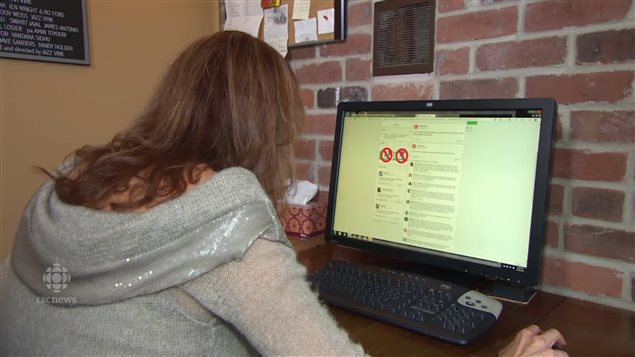A Canadian woman was shocked to suddenly get hundreds of emails from men who wanted to date her and realized she had inadvertently given a website permission to create a dating profile of her. The profile included her name, photo and postal code.

Mari Sherkin has been married for 25 years and was mortified to think her husband, friends or family might have seen the dating profile.
Pop-up ad suddenly appeared
Sherkin was on Facebook last January when she says she got a pop-up ad from Zoosk.com.
“I didn’t know what it was,” she told the public broadcaster, CBC. “So I clicked on the X to close it. At least I thought I did.
“However, what happened was it brought me to the Zoosk site, which turned out to be a dating site. Having been married since 1988, I wasn’t interested in a dating site, so I closed it.”
She says that within minutes, she started getting messages in her Facebook inbox from men.
Beware of what you are agreeing to
The problem appears to be what is known as “open authentication protocol.” This is a device used by Facebook, Twitter and Google. It enables a person to sign up to third-party websites without having to set up a new account with a new password. The problem is that if you agree to the terms, you are also automatically agreeing to share your private information with other websites.
Listen“What people need to do more than anything is to really understand that the internet is an economy of personal data, that these companies succeed and profit based on how many people sign up,” says Ramona Pringle, an assistant professor at Ryerson University’s school of Media. “So the easier they make it for you to create a profile on their site, the more successful the will be. The more they can pull your information…it benefits them.”
Privacy laws ‘outdated’
Getting information this way is legal. Pringle says privacy laws are outdated and privacy commissioners around the world are grappling with the issue.
Canada’s privacy commissioner has repeatedly raised concerns about what it calls “overly complex privacy policies and the need for companies to obtain informed consent for the collection and use of personal information.”
‘Be wary’
Pringle suggests people read the fine print on third-party sites and that they “be wary, be cautious, be informed.”







For reasons beyond our control, and for an undetermined period of time, our comment section is now closed. However, our social networks remain open to your contributions.